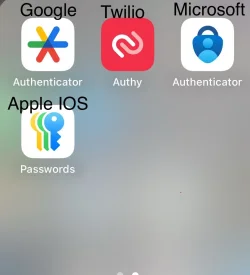Warren
Member
Hi Guys
These days it is getting more & more difficult to remember all your passwords.
Password managers used to be a convenient way to store passwords but these days hackers are breaking into more & more passwords managers by the day.
Google seems to be the worst.
I've had my google password manager compromised a few times already.
I don't like facial recognition because if someone stand 10m away from you & point your phone at your face, they have got access to your phone.
Walking past your pc can also be a problem if it signs you in everytime you are near your pc.
Two step verification is only as secure as the security you have on both devices therefore both devices need to be as close to impenetrable as possible.
One option I am looking into is fingerprint readers.
Does anyone use them?
Are they safe?
Are there any other ways that only you can get access to your devices?
These days it is getting more & more difficult to remember all your passwords.
Password managers used to be a convenient way to store passwords but these days hackers are breaking into more & more passwords managers by the day.
Google seems to be the worst.
I've had my google password manager compromised a few times already.
I don't like facial recognition because if someone stand 10m away from you & point your phone at your face, they have got access to your phone.
Walking past your pc can also be a problem if it signs you in everytime you are near your pc.
Two step verification is only as secure as the security you have on both devices therefore both devices need to be as close to impenetrable as possible.
One option I am looking into is fingerprint readers.
Does anyone use them?
Are they safe?
Are there any other ways that only you can get access to your devices?
My Computer
System One
-
- OS
- Windows 11
- Computer type
- PC/Desktop
- Manufacturer/Model
- Ascer Aspire XC-830
- Internet Speed
- Download 34.72 mps, Upload 76.22mpd
- Browser
- Firefox
- Antivirus
- MS Defender







